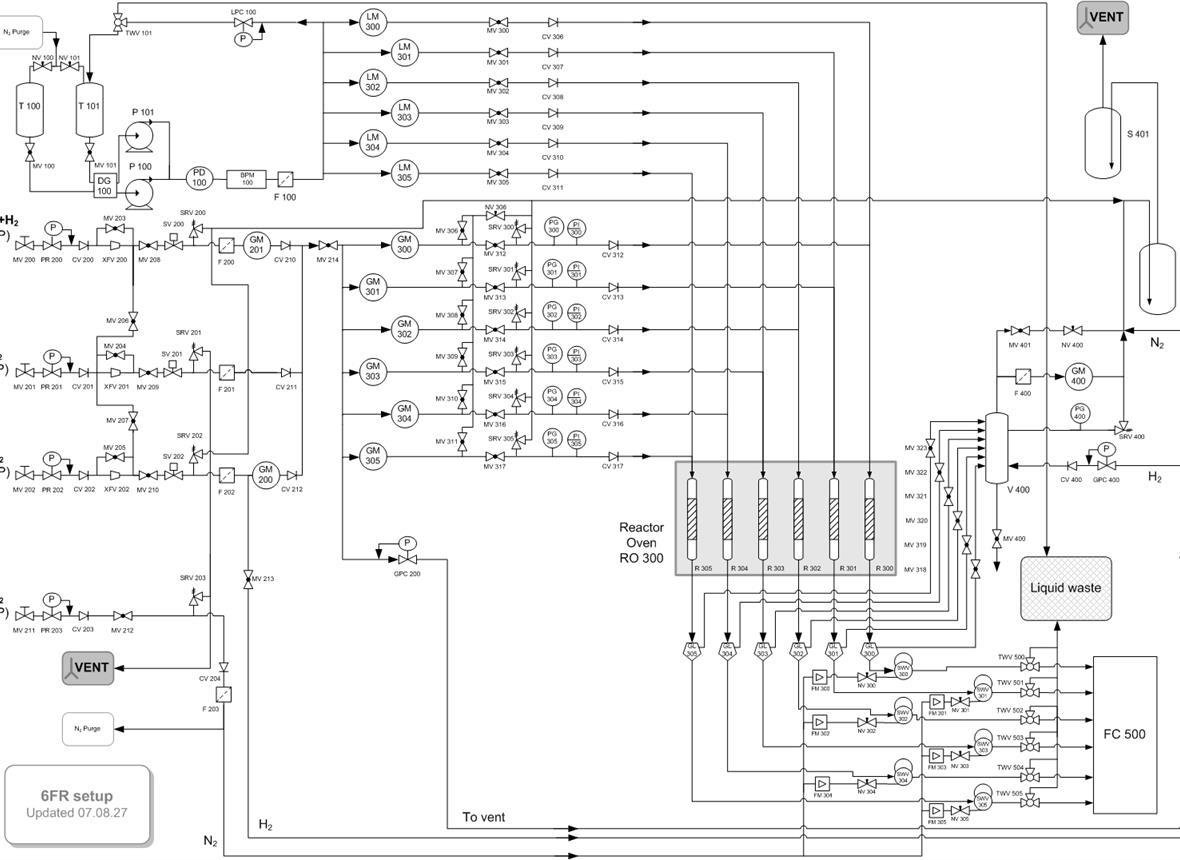Abstract
The effect of temperature has been studied in hydrocracking of light cycle oil (LCO), byproduct of fluidized catalytic cracking (FCC) units on a bifunctional catalyst (Pt‐Pd/HY zeolite). The increase in both temperature and H2 partial pressure have an important attenuating effect on catalyst deactivation, given that they decrease sulfur equilibrium adsorption and enhance hydrocracking of coke precursors. Therefore, the catalyst maintains significant hydrodesulfurization and hydrocracking activity. As the temperature is increased, hydrocracking conversion and naphtha selectivity increase, although there is no significant dearomatization of the medium distillate fraction in the range of the studied experimental conditions. 400 °C is the more suitable temperature for obtaining a high yield of naphtha with a high content of i‐paraffins.
Keywords
HPC
MKM
W2C
